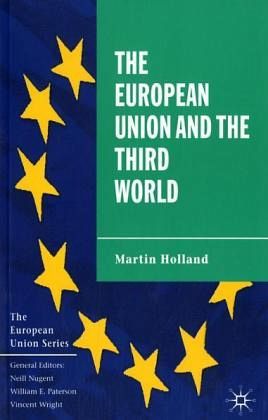Nicht lieferbar

European Union and the Third World
Versandkostenfrei!
Nicht lieferbar
This text provides a broad-ranging analysis of the EU's relations with the developing world today set in the context of the policy, debates and changes of the 1990s and the EU's historical ties to the Third World. Covering the whole range of the EU's relations with developing states including the Cotonou Agreement and the 'Everything but Arms' Regulation, the book assesses the likely evolution of trading regimes and the scope and limits of opportunities for fostering economic progress and good governance.



